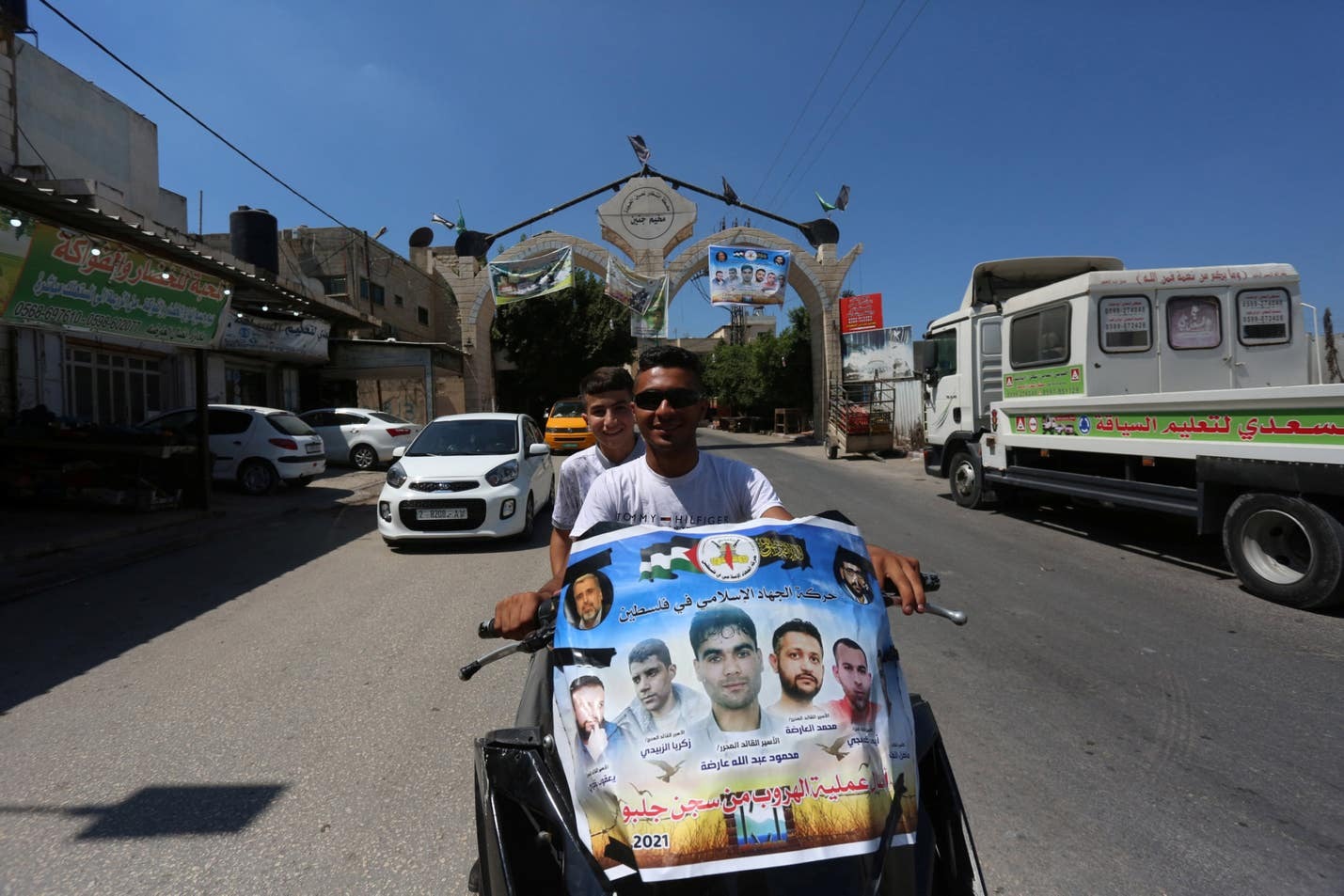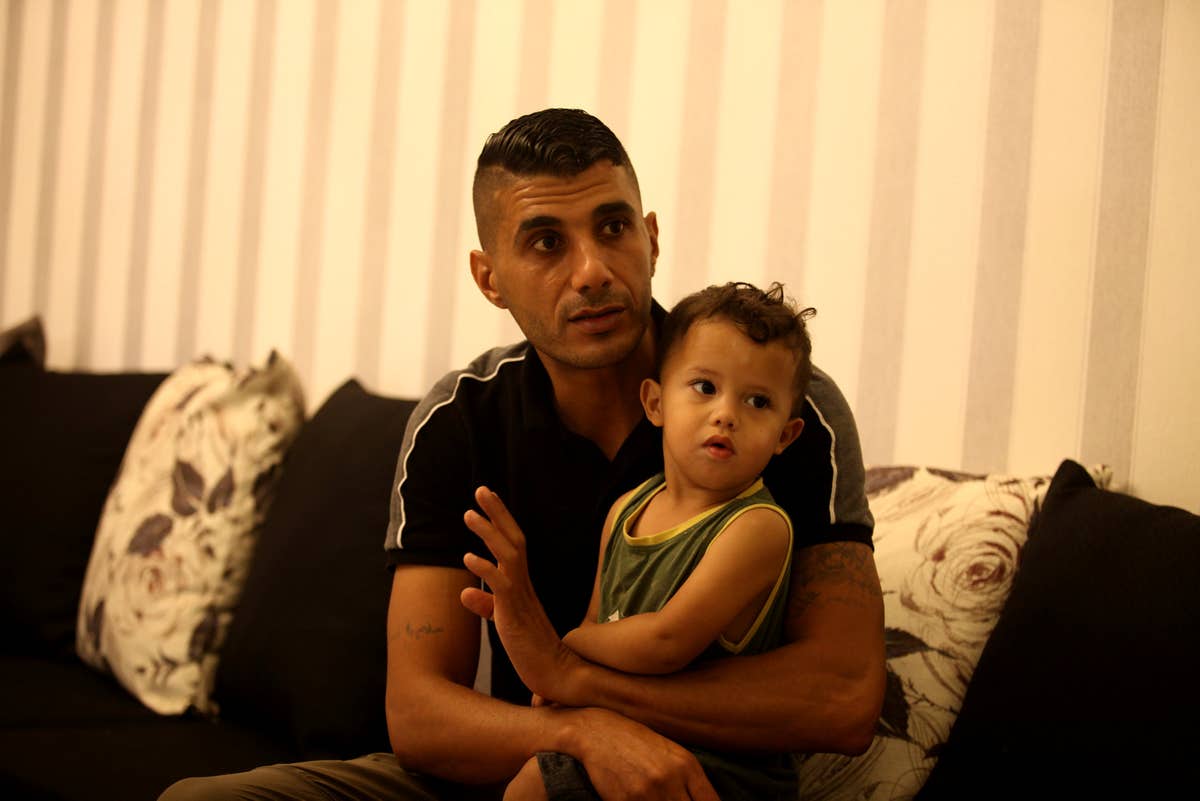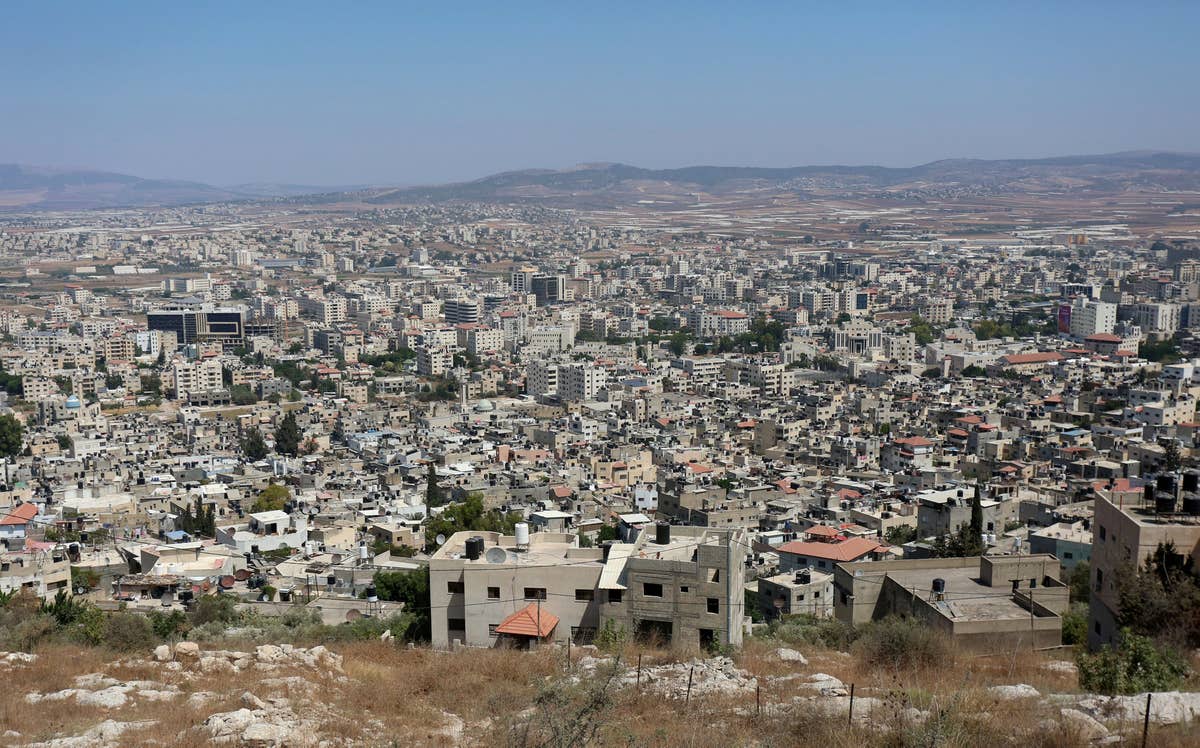Fear and Elation Reign in Jenin After Six of Its Own Escape From an Israeli Jail
 Friday, September 10, 2021 at 04:53PM
Friday, September 10, 2021 at 04:53PM There is a thin line for the West Bank's Palestinians between life and death, and frequently that line runs through a prison cell
by Amira Hass 10 September 2021. Haaretz

Zakaria Zubeidi’s maternal grandfather, Mohammed Ali Jahjah, was one of the 66 prisoners who escaped from Israel’s Shata Prison in the major prison revolt of 1958. This detail in the family history was casually mentioned the other day by Zakaria’s uncle (on his father’s side), Jamal Zubeidi.
It’s been 63 years since that revolt, but this week’s focus of attention is nearly at the same location. The new Gilboa Prison, from which Zakaria Zubeidi and five other Palestinian prisoners escaped earlier this week, is a nearby extension of sorts of Shata.
Jahjah and Jamal’s father were born in the village of Qaisariya (Caesarea) on the Mediterranean coast and were either expelled from there or not permitted to return after the Israeli-Arab war of 1948. Jamal Zubeidi told Haaretz that Jahjah managed to cross into the West Bank, which was then under Jordanian rule, and to reunite with his family in the Jenin refugee camp. After that, but prior to Israel’s occupation of the West Bank in 1967, he went to Jordan and was active in the Palestinian Fatah organization there.
After the events of so-called Black September in 1970, which saw clashes between the Palestinian organizations and the Jordanian authorities in the Hashemite kingdom, he left for Syria with other Palestinian refugees and militants. From there, he immigrated to Germany, where he was killed in a car accident.
His daughter Samira remained in the camp and married Jamal’s brother, who died at a young age of cancer after he refused to provide Israel’s Shin Bet security agency with information in exchange for further treatment. He was survived by seven young children, to whom Jamal became a father figure. On March 4, 2002, during the second intifada, Samira was shot and killed by an Israeli soldier as she stood at the window of her home in the refugee camp.
Monday’s escape by the two prisoners whose trials are still ongoing (Zubeidi and Munadel Infiat) and by four prisoners serving life sentences came as a huge surprise to their families. Some had visited their relatives in prison just a few days earlier, after a considerable period when visits were not possible due to coronavirus limitations or other restrictions on movement.

Escape from Gilboa Prison
Sunday, September 5
Security prisoners who dug under a sink in cell number 5 in wing 2 of Gilboa Prison discovered an open space between the floor and the foundation. They continued digging until they passed under the prison's walls.
Monday, September 6, 1:30-1:40 A.M.
The prisoners, several of whom were transferred to the cell that day, enter the tunnel and escape through it. The guard in the watchtower, which is directly above them, has fallen asleep.
1:49 A.M.
A taxi driver notifies the police that he saw several suspicious figures in dark clothes running across the road and hiding in the bushes.
1:58 A.M.
A police van arriving at a nearby gas station starts searching the area. An employee tells them that he also noticed a suspicious figure, but it’s unclear whether this is connected.
2:14 A.M.
The deputy commander of the Beit She’an Police Station notifies the Prison Service that they suspect the event is a prison break.
2:15 A.M.
The Prison Service is on the alert that there may have been an escape, and conducts a prisoner count.
3:29 A.M.
After the count, the Prison Service notifies the police about the escape of three prisoners.
4:00 A.M.
After viewing the surveillance footage, the Prison Service informs police that six prisoners have escaped.
In media interviews, all of the relatives said the same thing: Anyone who was up early that morning read about the escape on social media, before the names were publicized. Then the phone calls began coming in to make sure that no one had missed the news. Friends started showing up at their homes, as did journalists. “We can’t answer any questions because we don’t know anything,” Jamal said, summing up their responses for Haaretz.
- Security failures, sleeping guard: How did six Palestinians manage to escape heavily-guarded Israeli jail?
- Palestinian prison break could embolden terror groups in West Bank and Gaza
- No to the collective punishment of Palestinian prisoners
On the first two nights after the escape – or the self-release as they put it – friends and family, all of them male, gathered in the living room of Jamal’s modest home in the camp. Friends from Nablus brought trays of baklava to celebrate the six’s freedom.
 APJP |
APJP |  Post a Comment |
Post a Comment | 
